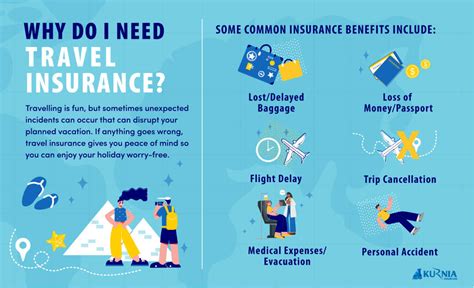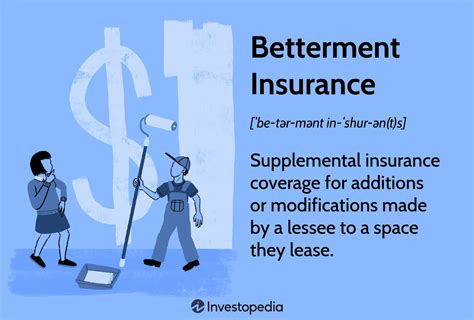Discover the benefits and coverage options of war risk insurance, as well as how to obtain it and the risks it may not cover.
Understanding war risk insurance
Contents
War risk insurance is a type of insurance policy that provides coverage for ships, aircraft, and other vehicles that are traveling through high-risk areas, such as war zones or areas with high levels of political instability. This type of insurance is designed to protect the owner or operator of the vessel or vehicle from financial loss in the event of damage or loss caused by war or other similar risks.
One of the main benefits of war risk insurance is that it provides coverage for risks that are not typically covered by standard insurance policies. This includes risks such as piracy, sabotage, and confiscation of property. By obtaining war risk insurance, owners and operators can have peace of mind knowing that they are protected against a wide range of potential risks.
There are various coverage options available for war risk insurance, depending on the specific needs of the insured party. These options may include coverage for hull damage, machinery damage, loss of income, and personal injury. Additionally, war risk insurance may also cover costs associated with detention, diversion, and additional security measures.
It’s important to note that war risk insurance may not cover all potential risks. For example, some policies may exclude coverage for damage or loss caused by nuclear weapons, radioactive contamination, or chemical or biological weapons. It’s essential for owners and operators to carefully review the terms and conditions of their war risk insurance policy to understand the specific risks that are covered and those that are not.
Obtaining war risk insurance typically involves working with an insurance broker or underwriter who specializes in this type of coverage. These professionals can help owners and operators assess their specific risk exposure and tailor a policy that meets their needs. By working with experienced professionals, insured parties can ensure that they have the right level of coverage to protect against the unique risks associated with traveling through high-risk areas.
Coverage options for war risk insurance
War risk insurance offers coverage for a wide range of risks that may not be covered by traditional insurance policies. These risks can include acts of war, terrorism, political violence, and civil unrest. The coverage options for war risk insurance can vary depending on the insurer and the specific policy. Most war risk insurance policies will offer coverage for damage to the insured property, including hull and machinery, as well as coverage for liabilities arising from war-related events.
Additionally, war risk insurance can provide coverage for loss of earnings and business interruption due to war-related events. This can be particularly important for businesses operating in high-risk areas or industries. Some war risk insurance policies may also offer coverage for ransom and extortion, providing financial protection in the event of kidnap or extortion by hostile forces.
It’s important to carefully review the coverage options offered by different war risk insurance policies to ensure that your specific needs are met. Some policies may offer broader coverage than others, so it’s important to consider the specific risks faced by your business or property when selecting a policy.
Some insurers may also offer additional coverage options such as war risk assessment and risk management services. These services can help businesses and property owners assess their exposure to war-related risks and develop strategies to mitigate these risks.
Ultimately, the coverage options for war risk insurance can provide comprehensive protection for businesses and property owners operating in high-risk areas or industries. By carefully considering the specific risks faced and selecting a policy that offers the most relevant coverage options, businesses and property owners can effectively manage and mitigate the impact of war-related events.
Benefits of war risk insurance
War risk insurance offers protection to businesses and individuals who operate in or near areas of conflict or political unrest. One of the key benefits of war risk insurance is the financial security it provides in the event of damages or losses caused by war, civil unrest, or acts of terrorism.
Additionally, war risk insurance can help mitigate the potential impact of political risk on business operations, allowing companies to continue operating even in high-risk environments. This can be particularly important for organizations with international operations or those that rely on global supply chains.
Another advantage of war risk insurance is the peace of mind it brings to individuals and businesses operating in volatile regions. By having coverage in place, they can focus on their work and daily activities without the constant worry of potential losses due to unforeseen events.
Furthermore, war risk insurance often provides coverage for business interruption resulting from war-related events, helping companies recover lost income and continue operations in the aftermath of a crisis.
Overall, war risk insurance provides essential protection and security for individuals and businesses operating in high-risk areas, offering financial support and peace of mind in the face of unforeseen political and social unrest.
Risks not covered by war risk insurance
Risks not covered by war risk insurance
While war risk insurance provides valuable coverage for a wide range of risks associated with war and civil unrest, there are certain risks that are typically not covered by standard war risk insurance policies. It’s important for businesses and individuals to understand these exclusions so that they can make informed decisions about their insurance coverage.
One common exclusion in war risk insurance policies is coverage for acts of terrorism. While acts of terrorism can cause significant damage and disruption, they are typically considered a separate and distinct risk from the risks covered by war risk insurance. Businesses and individuals may need to obtain separate terrorism insurance policies to ensure they are adequately protected in the event of a terrorist attack.
In addition to acts of terrorism, war risk insurance policies may also exclude coverage for cyber warfare and cyber terrorism. As the threat of cyber attacks continues to grow, it’s important for businesses to carefully review their insurance coverage to ensure they have adequate protection against these evolving risks. Cyber insurance policies may need to be obtained to fill in any coverage gaps related to cyber warfare and cyber terrorism.
Other exclusions in war risk insurance policies may include coverage for political violence, nuclear events, and certain types of military actions. It’s important for businesses and individuals to carefully review their policy documents and work with their insurance brokers to understand the specific exclusions that apply to their war risk insurance coverage.
How to obtain war risk insurance
Obtaining war risk insurance can be a complex process, but it is necessary for businesses that operate in high-risk areas. The first step in obtaining war risk insurance is to gather all necessary documentation, such as proof of ownership, vessel information, and financial records. Once the necessary documents are in order, it is important to find a reputable insurance broker that specializes in war risk insurance.
The insurance broker will be able to provide guidance on the types of coverage available and help determine the appropriate level of coverage for the business. After the initial consultation, the broker will work with the business to complete an application for war risk insurance. This application will require detailed information about the business, its operations, and the specific risks it faces.
Once the application is submitted, the insurance underwriter will review the information and assess the level of risk associated with providing coverage. This process may involve additional correspondence and requests for more information. If the underwriter determines that the business is eligible for war risk insurance, the final step is to negotiate the terms and pricing of the policy.
It is important for businesses to carefully review the terms and conditions of the policy to ensure that it meets their needs. Once the policy is agreed upon, the business can obtain war risk insurance coverage and operate with the peace of mind that it is protected in the event of war or other related risks.













